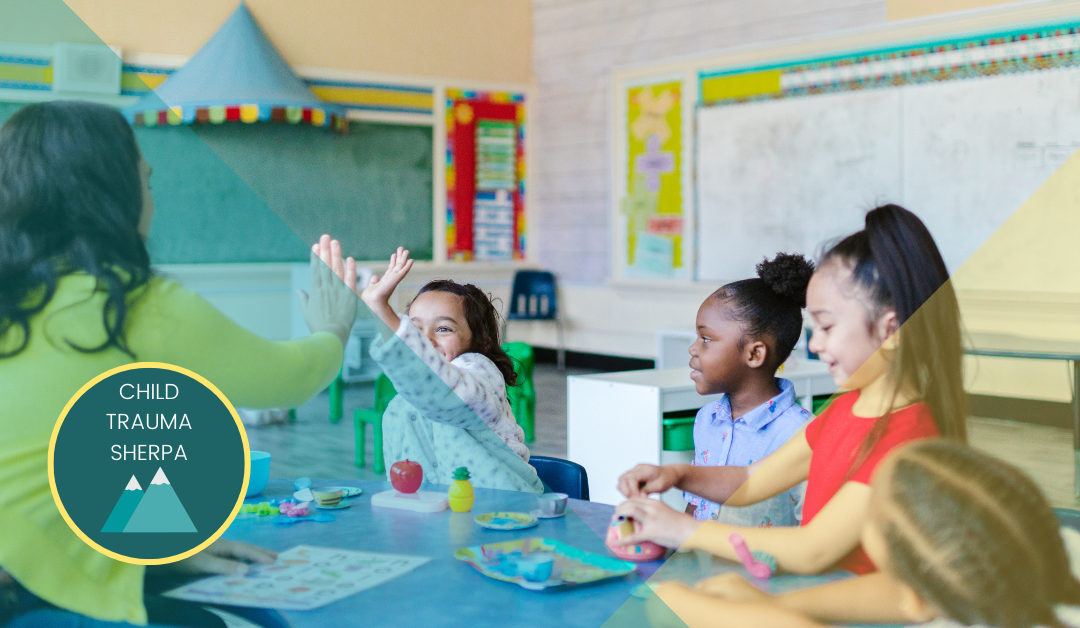Why Change is Hard Plus 3 Tips to Ease Big Transitions
Whether it is a new school year, moving and being the new kid, going on break then returning to school, or some other big change in life, these experiences can come with a different set of emotions. For many parents and teachers, this can be an exciting time, but it can also be exhausting.
Children are in a similar situation to adults when it comes to big transitions. They feel a wide array of emotions, from excitement to tiredness, as they enter the new situation or phase of their life. It is important to recognize this big transition for every student as there is always some level of stress. The early weeks are probably some of the toughest, however, the raw emotions can continue to linger if real support isn’t given to your child with trauma.
Why Change is So Tough
So, why is change so hard for people? It is because our brains love patterns and schedules. Change can disrupt that pattern or schedule, causing anxiety. But when we know what to expect each day, we are less on guard and can feel more relaxed.
That is why beginning a new daily pattern can be so stressful and overwhelming for children with trauma. You’d be wrong to think that leaving a pattern of chaos and entering one of calm is helpful; even in a pattern of chaos our brains know what to expect.
What Happens to Our Brain During Big Transitions
Whether it is summer break or winter break, children are leaving one daily pattern and entering a new one or returning to a previous one, causing disruption in the brain. When we transition like this, we are more likely to be on guard and reactive. This means students are less open to absorbing information they are being taught in math class, and are more interested in absorbing information about whether or not they feel safe at that moment.
First Impressions Matter
Setting the tone during the first days of school or the first few days back after a break are key. Our brain decides early on whether someone or somewhere is safe and it is hard to rewire that conclusion.
For all children, but particularly those with trauma, it is relationships that are so important. That is why focusing on building or continuing to build your relationship with children is so crucial. When students know you respect and care about them, it will make this transition smoother and improve their ability to learn throughout the year. It can make returning from future breaks that much smoother as well.
Parents and Supporting Big Transitions
Parents of children with trauma should prepare their child for transitions in advance. Speak with your child about the coming transition and what they might be able to expect. You may need to start easing them into a different schedule, such as getting up at a particular time. Also, speak to new teachers about your child’s trauma and how they can best handle things. If something happened over break that could cause a disruption in class, be sure to give your child’s teacher a heads up.
3 Tips to Support Children Through Big Transitions in School
Transitions can be difficult to navigate, but these 3 tips will help ease them through those big changes.
- There is power in a name. Work hard to learn each student’s name (and the correct pronunciation) and use their name often.
- Learn little things about the student and find ways to bring up those things you have learned. This lets the child know you are learning about them and building a relationship with them.
- Let your students know you believe each of them can do well and that you will do everything you can to help them achieve success. This shows that you can be trusted and that you are a safe person to come to if they are having difficulties.
While the first tip is great for the beginning of the school year or a new student, the last two should be done throughout the school year. Continue to learn about your child and build your relationship. Then show them that you are a safe person and you are there to help them and guide them toward healing. With support and a focus on safe, positive relationships, you’ll find that a child with trauma is able to blossom and succeed in life!


